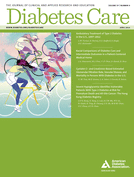 Several months after a drug company cancelled development of a potential diabetes cure because it found evidence that a biotech they had recently acquired had committed misconduct in studies of the drug, two retractions of relevant studies have appeared.
Several months after a drug company cancelled development of a potential diabetes cure because it found evidence that a biotech they had recently acquired had committed misconduct in studies of the drug, two retractions of relevant studies have appeared.
The research involves DiaPep277, which, as Josh Levy explained here in September, “would cause the immune system to stop attacking beta cells,” the cells in the pancreas that produce insulin. But Hyperion Therapeutics, which had acquired DiaPep277 developer Andromeda Biotech in June, announced in September that it had
uncovered evidence that certain employees of Andromeda Biotech, Ltd., which Hyperion acquired in June 2014, engaged in serious misconduct, including collusion with a third-party biostatistics firm in Israel to improperly receive un-blinded DIA-AID 1 trial data and to use such data in order to manipulate the analyses to obtain a favorable result.
The retractions are both of papers published in Diabetes Care in May 2014. Here’s the notice for “Treatment of Recent-Onset Type 1 Diabetic Patients With DiaPep277: Results of a Double-Blind, Placebo-Controlled, Randomized Phase 3 Trial:” Continue reading Retractions follow revelations of misconduct by diabetes biotech







